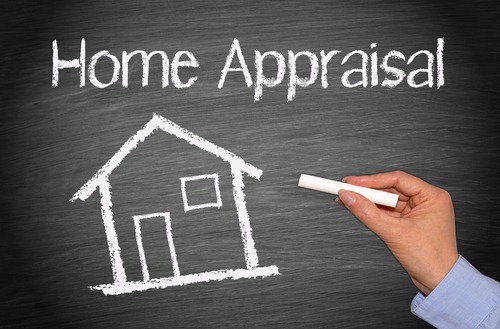The appraisal is a critical step in the home buying process. An appraisal is required by mortgage lenders and it estimates the value of a property. A mortgage lender will not lend more than a home’s worth, so the bank will order an appraisal from a licensed or certified home appraiser who’ll assess the property’s market value based on a number of factors, such as square footage, improvements and recent home sales. Sadly, some homebuyers and sellers don’t know how appraisals work, or understand how the appraisal can affect a real estate transaction.
Whether you’re a first-time buyer or a repeat buyer, here are four things you need to know about appraisal.
1. How An Appraisal Differs from a Home Inspection
Both a home inspection and a home appraisal are common practice when buying or selling a property, but there are differences between the two.
With a home inspection—which is optional—a certified home inspector conducts an in-depth examination of the property from top to bottom. He looks for potential defects or problems with the roof, foundation, electrical system, plumbing, and HVAC system. An appraisal, on the other hand, also visually inspects a home. But since his job is to determine the property’s market value, his attention is focused on the home’s size, improvements and overall condition. The appraiser then compares the property’s selling price with recent sale prices of similar homes in the area.
2. Who Pays for a Home Appraisal?
The home appraisal fee is part of a buyer’s closing costs. But instead of paying for the appraisal at closing, it’s usually paid beforehand at the time of the appraisal. Homebuyers are responsible for the fee. The cost of a home appraisal varies, but a typical fee is between $300 and $400
3. Who Selects the Home Appraiser?
A home appraisal needs to be neutral and non-biased; therefore, neither the home seller or buyer selects the appraisal company. The buyer’s mortgage lender chooses the appraiser who physically visits the property. The entire process can take as little as 20 minutes or an hour or more, depending on the size of the property. The appraiser will take note of the condition of the property and provide the bank with a written appraisal within two to five days.
4. What to Do With a Low Appraisal?
Sometimes, homes appraise lower than the agreed-upon sales price of a property. This doesn’t necessarily kill the deal. There are ways to respond to a low appraisal. As the seller, you can reduce the sale price of the house to match the appraisal. If the sale price is $160,000, but the home only appraises for $157,000, lowering the price by $3,000 might be enough to save the deal. You can ask for a copy of the appraisal report and look for errors. The report may include mistakes about your home’s square footage, number of bedrooms or recent upgrades. There’s also the option of getting a second opinion. Some lenders will allow a second appraisal, but the home seller must pay the expense.








